Whey protein
Filters
-
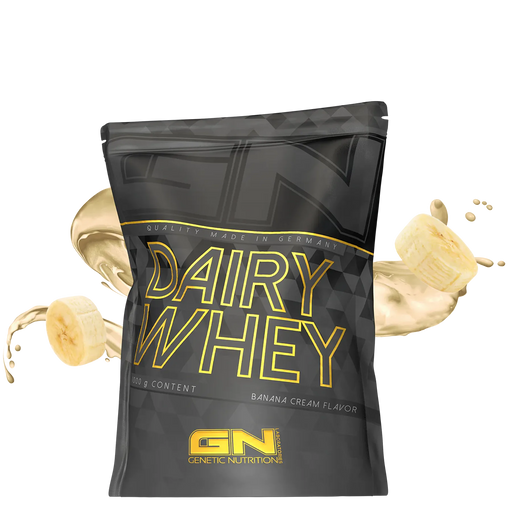 Save 0%
Save %
Original price €29,90 - Original price €29,90Original price €29,90€29,90€29,90 - €29,90Current price €29,90| /
Save 0%
Save %
Original price €29,90 - Original price €29,90Original price €29,90€29,90€29,90 - €29,90Current price €29,90| /100% Dairy Whey · 1000g
GN Laboratories164 reviewsWhey protein is one of the most popular supplements. This is mainly due to the fact that it is an ideal source of protein with which you can optima...
View full detailsOriginal price €29,90 - Original price €29,90Original price €29,90€29,90€29,90 - €29,90Current price €29,90| /Save 0% Save % -
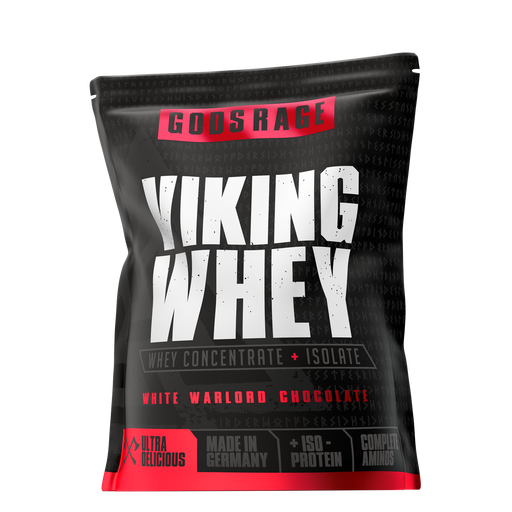 Save 0%
Save %
Original price €29,90 - Original price €29,90Original price €29,90€29,90€29,90 - €29,90Current price €29,90| /
Save 0%
Save %
Original price €29,90 - Original price €29,90Original price €29,90€29,90€29,90 - €29,90Current price €29,90| /Viking Whey · 1000g
Gods Rage64 reviewsViking Whey has enjoyed great popularity for years. This is partly because its isolate content makes it an ideal source of protein. But above all i...
View full detailsOriginal price €29,90 - Original price €29,90Original price €29,90€29,90€29,90 - €29,90Current price €29,90| /Save 0% Save % -
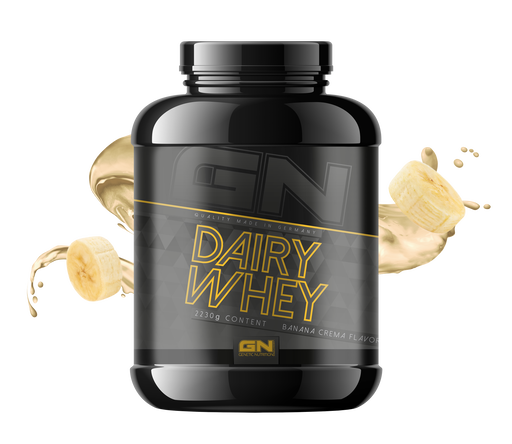 Save 0%
Save %
Original price €62,90 - Original price €62,90Original price €62,90€62,90€62,90 - €62,90Current price €62,90| /
Save 0%
Save %
Original price €62,90 - Original price €62,90Original price €62,90€62,90€62,90 - €62,90Current price €62,90| /100% Dairy Whey · 2230g
GN Laboratories36 reviewsWhey protein is one of the most popular supplements. This is mainly due to the fact that it is an ideal source of protein with which you can optima...
View full detailsOriginal price €62,90 - Original price €62,90Original price €62,90€62,90€62,90 - €62,90Current price €62,90| /Save 0% Save % -
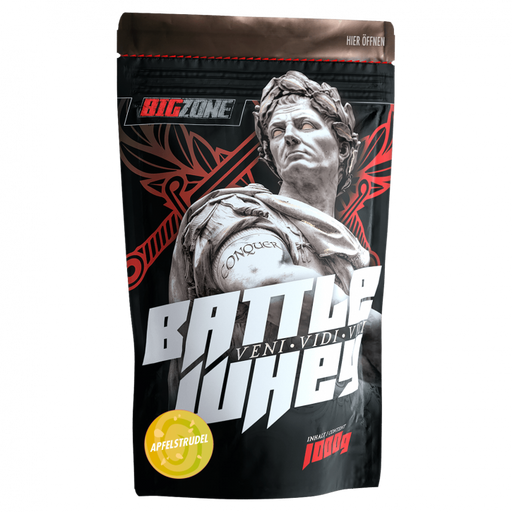 Save 0%
Save %
Original price €31,90 - Original price €31,90Original price €31,90€31,90€31,90 - €31,90Current price €31,90| /
Save 0%
Save %
Original price €31,90 - Original price €31,90Original price €31,90€31,90€31,90 - €31,90Current price €31,90| /Battle Whey · 1000g
Big Zone17 reviewsAddition of digestive enzymes Better digestibility Better absorption Suitable for lactose intolerant people Creamy consistency
Original price €31,90 - Original price €31,90Original price €31,90€31,90€31,90 - €31,90Current price €31,90| /Save 0% Save % -
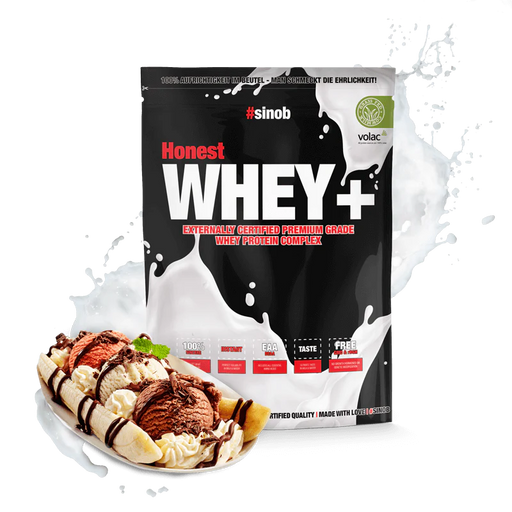 Save up to 10%
Save %
Original price €26,90 - Original price €31,90Original price €26,90 - Original price €31,90Original price €26,90€26,90 - €31,90€26,90 - €31,90Current price €26,90| /
Save up to 10%
Save %
Original price €26,90 - Original price €31,90Original price €26,90 - Original price €31,90Original price €26,90€26,90 - €31,90€26,90 - €31,90Current price €26,90| /Honest Whey Plus · 1000g · 820g
#sinob8 reviewsVersatile target group: Ideal for bodybuilders, endurance athletes, professionals and amateur athletes. Practical and portable: Easy to transpo...
View full detailsOriginal price €26,90 - Original price €31,90Original price €26,90 - Original price €31,90Original price €26,90€26,90 - €31,90€26,90 - €31,90Current price €26,90| /Save up to 10% Save % -
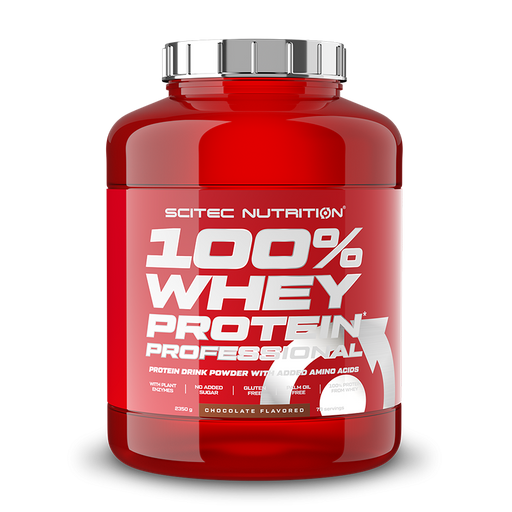 Save 0%
Save %
Original price €64,90 - Original price €64,90Original price €64,90€64,90€64,90 - €64,90Current price €64,90| /
Save 0%
Save %
Original price €64,90 - Original price €64,90Original price €64,90€64,90€64,90 - €64,90Current price €64,90| /100% Whey Protein Professional · 2350g
SCITEC Nutrition6 reviewsMixture of whey concentrate and whey isolate Contains all essential amino acids Additional amino acids and digestive enzymes Contains L-leucine, L...
View full detailsOriginal price €64,90 - Original price €64,90Original price €64,90€64,90€64,90 - €64,90Current price €64,90| /Save 0% Save % -
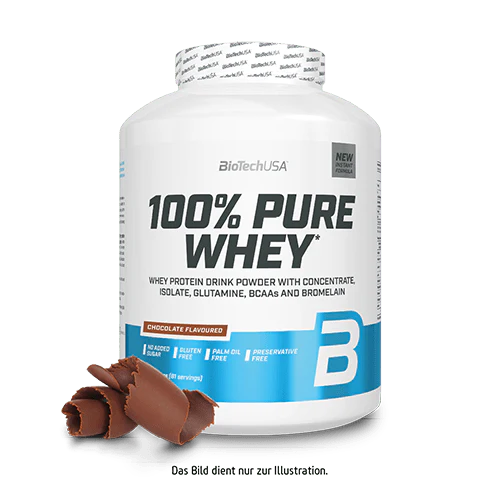 Save 0%
Save %
Original price €61,90 - Original price €61,90Original price €61,90€61,90€61,90 - €61,90Current price €61,90| /
Save 0%
Save %
Original price €61,90 - Original price €61,90Original price €61,90€61,90€61,90 - €61,90Current price €61,90| /100% Pure Whey · 2270g
Biotech USA7 reviewsHigh protein content: 78 % 6 g BCAA per serving Gluten-free No added sugar No aspartame No preservatives Versatile range of flavors Also available...
View full detailsOriginal price €61,90 - Original price €61,90Original price €61,90€61,90€61,90 - €61,90Current price €61,90| /Save 0% Save % -
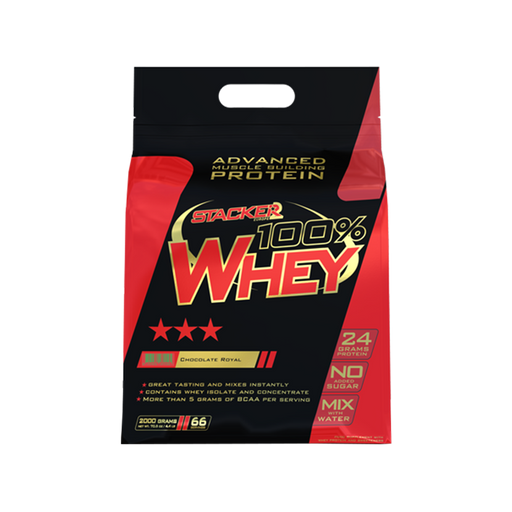 Save 0%
Save %
Original price €54,90 - Original price €54,90Original price €54,90€56,90€56,90 - €56,90Current price €56,90| /
Save 0%
Save %
Original price €54,90 - Original price €54,90Original price €54,90€56,90€56,90 - €56,90Current price €56,90| /100% Whey · 2000g
Stacker 26 reviews100% Whey Stacker 2 is a protein supplement for optimal muscle building. Contains only whey with the highest biological value. Reduces unwanted mu...
View full detailsOriginal price €54,90 - Original price €54,90Original price €54,90€56,90€56,90 - €56,90Current price €56,90| /Save 0% Save % -
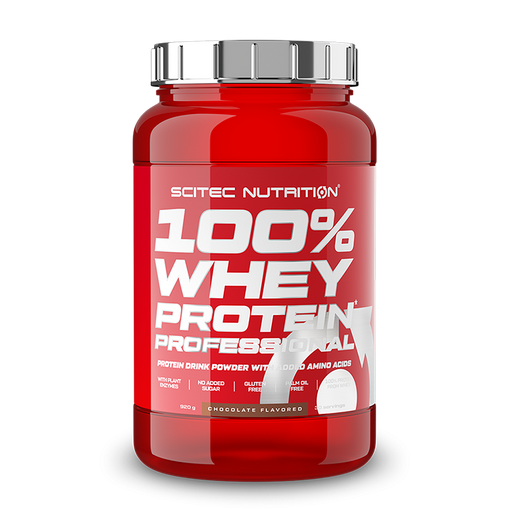 Save 0%
Save %
Original price €28,90 - Original price €28,90Original price €28,90€28,90€28,90 - €28,90Current price €28,90| /
Save 0%
Save %
Original price €28,90 - Original price €28,90Original price €28,90€28,90€28,90 - €28,90Current price €28,90| /100% Whey Protein Professional · 920g
SCITEC Nutrition5 reviewsMixture of whey concentrate and whey isolate Contains all essential amino acids Additional amino acids and digestive enzymes Contains L-leucine, L...
View full detailsOriginal price €28,90 - Original price €28,90Original price €28,90€28,90€28,90 - €28,90Current price €28,90| /Save 0% Save % -
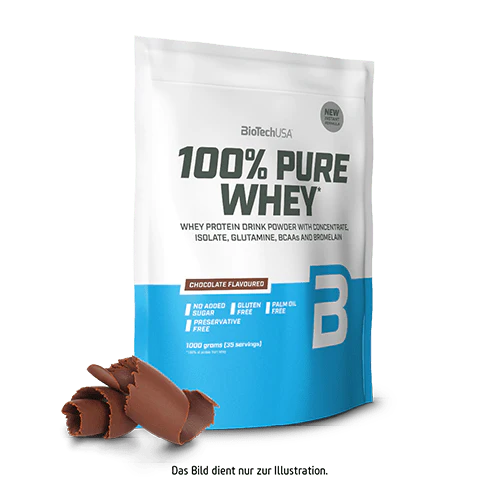 Save 0%
Save %
Original price €29,90 - Original price €29,90Original price €29,90€29,90€29,90 - €29,90Current price €29,90| /
Save 0%
Save %
Original price €29,90 - Original price €29,90Original price €29,90€29,90€29,90 - €29,90Current price €29,90| /100% Pure Whey · 1000g
Biotech USA4 reviewsHigh protein content: 78 % 6 g BCAA per serving Gluten-free No added sugar No aspartame No preservatives Versatile range of flavors Also available...
View full detailsOriginal price €29,90 - Original price €29,90Original price €29,90€29,90€29,90 - €29,90Current price €29,90| /Save 0% Save % -
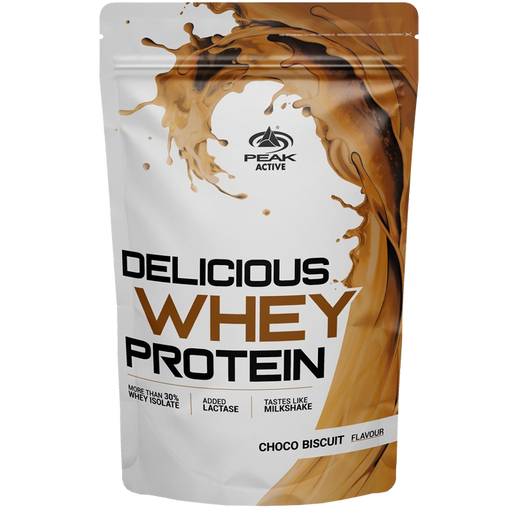 Save 0%
Save %
Original price €27,90 - Original price €27,90Original price €27,90€27,90€27,90 - €27,90Current price €27,90| /
Save 0%
Save %
Original price €27,90 - Original price €27,90Original price €27,90€27,90€27,90 - €27,90Current price €27,90| /Delicious Whey Protein · 900g
PEAK5 reviewsHigh-quality combination of whey concentrate & whey isolate High-quality whey protein with excellent nutritional values Outstanding amino acid...
View full detailsOriginal price €27,90 - Original price €27,90Original price €27,90€27,90€27,90 - €27,90Current price €27,90| /Save 0% Save % -
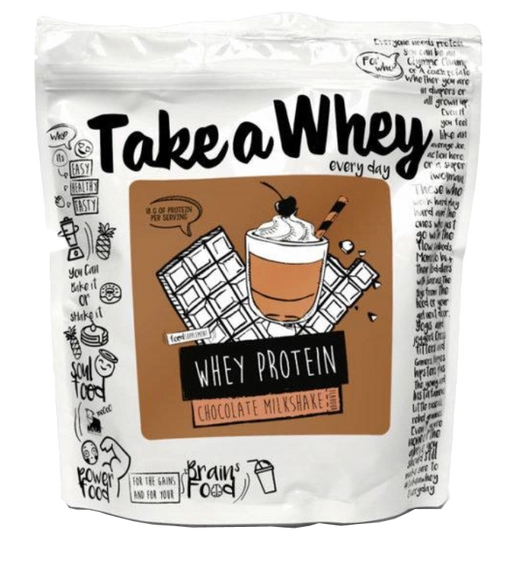 Save 0%
Save %
Original price €19,90 - Original price €19,90Original price €19,90€19,90€19,90 - €19,90Current price €19,90| /
Save 0%
Save %
Original price €19,90 - Original price €19,90Original price €19,90€19,90€19,90 - €19,90Current price €19,90| /Take-a-Whey · 900gr
Take-a-Whey3 reviewsHigh-quality whey protein: Ideal source of essential amino acids to support muscle building. Incredible taste: Intense and delicious flavors th...
View full detailsOriginal price €19,90 - Original price €19,90Original price €19,90€19,90€19,90 - €19,90Current price €19,90| /Save 0% Save % -
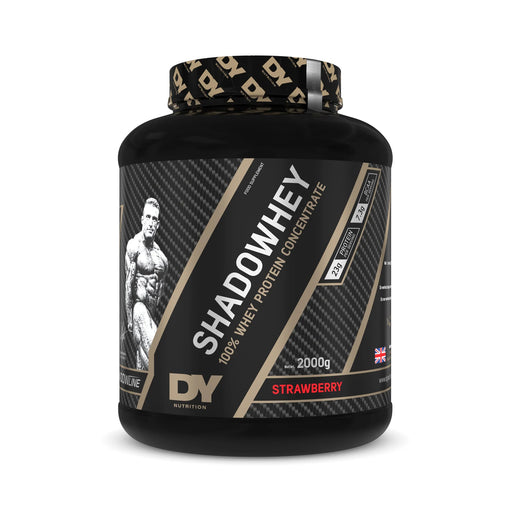 Save 0%
Save %
Original price €49,90 - Original price €49,90Original price €49,90€49,90€49,90 - €49,90Current price €49,90| /
Save 0%
Save %
Original price €49,90 - Original price €49,90Original price €49,90€49,90€49,90 - €49,90Current price €49,90| /Shadowhey Concentrate · 2000g
DY Nutrition1 reviewHighest quality whey protein concentrate on the market with 23g of premium protein per serving. Obtained from grass-fed beef, which underlines th...
View full detailsOriginal price €49,90 - Original price €49,90Original price €49,90€49,90€49,90 - €49,90Current price €49,90| /Save 0% Save % -
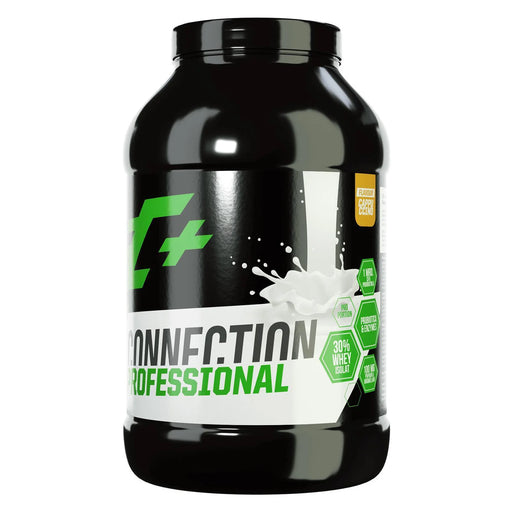 Save 0%
Save %
Original price €37,90 - Original price €37,90Original price €37,90€37,90€37,90 - €37,90Current price €37,90| /
Save 0%
Save %
Original price €37,90 - Original price €37,90Original price €37,90€37,90€37,90 - €37,90Current price €37,90| /Whey Connection Professional · 1000g
Zec+1 reviewFast protein supply: ZEC+ Whey Connection Professional offers a combination of whey protein concentrate and isolate for effective muscle building...
View full detailsOriginal price €37,90 - Original price €37,90Original price €37,90€37,90€37,90 - €37,90Current price €37,90| /Save 0% Save %
Not all types of protein are the same. Some forms of protein, such as whey protein, are better than others. Whey protein contains a surprisingly wide range of amino acids that are quickly absorbed (1). Numerous studies have shown that whey protein can help you get stronger, build muscle and lose significant amounts of body fat (2). However, whey protein is more than just protein. It contains numerous other nutrients, some of which have potent biological effects. Whey protein is one of the most scientifically studied sports supplements in the world. This article will give you a detailed overview of all the properties and benefits of whey protein and show you what whey protein is, how it works and how it can help you achieve your fitness and health goals.
What is whey protein?
Whey protein is a mixture of proteins isolated from whey - the liquid part of milk left over from the cheese-making process. Milk contains two primary types of protein: casein (80%) and whey protein (20%). Whey protein is found in the watery part of the milk. When cheese is made, the fattier parts of the milk curdle and whey, which contains whey protein, settles out as a by-product (3). If you have ever opened a yogurt and seen a liquid on top of the solid yogurt, this was whey. Whey used to be discarded as a waste product in cheese production before its commercial value was recognized (4).
After being separated from the milk solids as part of the cheese-making process, whey goes through a number of processing steps before the final product is what most people know as whey protein - a powder that is added to shakes, meal replacements and protein bars (5). Whey protein usually doesn't taste very good on its own, which is why it is usually flavored. It is important to look at the label as some protein products may contain unhealthy additives such as refined sugar.
Using whey protein is a convenient way to get larger amounts of protein in addition to your daily diet. This can be important for bodybuilders and fitness athletes, as well as for people who want to lose weight or simply add more protein to their diet. Most flavored whey proteins are quite delicious and can add great flavor to healthy recipes like smoothies. Whey protein is generally well tolerated, although people who suffer from lactose intolerance should be careful. There are also some people who are allergic to whey protein (6). Whey protein supplements can help you increase your protein and BCAA intake. Proteins are the primary building blocks of the human body. They are required for the production of many important structures and body components including tendons, organs, skin, hormones, enzymes, neurotransmitters and numerous molecules. Proteins are also the building blocks of the contractile elements of your muscles.
Proteins are made up of amino acids, which are smaller molecules that are strung together like chains on a string. Some amino acids are produced by the cells in your body, while others are supplied by the food you eat. The amino acids that your body cannot produce itself and that are supplied through food are also known collectively as essential amino acids. Proteins that provide all nine essential amino acids are the best and whey protein is packed with essential amino acids. Whey protein is particularly rich in branched-chain amino acids such as leucine, also known as BCAAs, and also contains large amounts of cysteine (7). Studies have shown that leucine is the most anabolic of all amino acids and that cysteine can help to increase levels of the cellular antioxidant glutathione (8, 9). Whey protein appears to be particularly effective in stimulating (muscle) growth in humans. It is not for nothing that human breast milk consists of 60% whey protein, whereas cow's milk usually only contains 20% whey protein (10).
What are the advantages of whey protein compared to other protein sources?
With a biological value of 104 to 110, whey protein has the highest biological value of all naturally occurring protein sources. In addition, of all natural protein sources, whey protein contains the highest proportion of branched-chain amino acids(BCAAs), which have both anabolic (muscle-building) and anti-catabolic (preventing muscle breakdown) effects. Apart from these physiological benefits, whey protein is generally very soluble in liquid and has a pleasant taste of its own. The biological value of proteins is a measure of how dietary proteins can be converted into the body's own proteins. One of the key advantages of this protein is its rapid digestibility.
In practice, this means that blood amino acid levels reach their maximum level just 30 to 45 minutes after consuming whey protein. In addition, the peak amino acid concentration in the blood after consuming whey protein is higher than with most other types of protein. This is of crucial importance, as it is not the total amount of amino acids released, but the strength of the increase in blood amino acid levels that causes a strong anabolic (muscle-building) reaction in the body. The classic contrast to whey protein is casein protein, which is digested relatively slowly. Casein protein is therefore an ideal supplement to whey protein, as it ensures an optimum supply of protein to the muscles overnight.
Different types of whey protein: concentrates vs. isolates vs. hydrolysates
There are several popular types of whey protein, the main difference being the way they are produced:
- Concentrates: contain about 70 to 80% protein. Whey protein concentrate contains some lactose (milk sugar) and fat and also has the best taste.
- Isolates: contain 90% protein and contain less lactose and fat. However, depending on the manufacturing process, isolates lack many of the healthy and beneficial nutrients found in whey protein concentrates.
- Hydrolysate: Also known as hydrolyzed whey protein, this whey protein has been enzymatically predigested so that it can be absorbed faster. It causes a 28 to 43% higher insulin peak than whey protein isolate (11).
Whey protein concentrate may be the best option for many. It is the cheapest and contains most of the healthy nutrients naturally found in whey protein. Many people also prefer the taste, which is probably due to the lactose and fat content. If you don't tolerate whey protein concentrate as well, or if you want to increase your protein intake with minimal carbohydrate and fat, then whey protein isolate - or perhaps even a whey protein hydrolysate - may be a better option. It's also worth bearing in mind that although whey protein concentrate is the most popular form, most scientific studies have used whey protein isolate.
The effects of whey protein supplementation on muscle mass and strength
Whey protein provides the body with the necessary building blocks to produce the amino acids used to build muscle tissue. Almost every bodybuilder knows the importance of protein supplementation. Numerous studies have been carried out comparing whey protein with other protein sources. They concluded that whey protein contains the perfect combination of amino acids... and just the right concentrations for optimal performance in the body. Both hormonal and cellular responses appear to be enhanced by supplementation with whey protein. Whey protein supplementation is most commonly used to increase muscle mass and strength. Whey protein is very popular with athletes, bodybuilders, fitness models and people who want to improve their performance in the gym. The mechanisms by which whey protein can promote gains in strength and muscle mass include the following:
- Building blocks for muscles: Whey protein provides proteins and amino acids that serve as building blocks for increased muscle growth.
- Hormones: Whey protein increases the release of anabolic hormones such as insulin, which can stimulate muscle growth (12).
- Leucine: Whey protein is rich in the amino acid leucine, which is known to stimulate protein synthesis on a molecular and genetic level (13, 14).
- Rapid absorption: Whey protein is absorbed and utilized by the body very quickly compared to other protein sources (15).
Whey protein has been shown to be particularly effective for increasing muscle mass when consumed immediately before, during and after training. Muscle protein synthesis is usually at its highest level in the post-workout phase (16, 17, 18, 19). However, a recent study review concluded that total daily protein intake is the most relevant factor for muscle growth. Whether this protein is consumed in the period around training or at other times appears to play a subordinate role (20). Compared to other types of protein, whey protein usually performs slightly better in terms of building muscle mass and strength (21, 22). However, when compared to casein, the results are mixed. Whey protein seems to be better in the short term, while casein stimulates muscle growth over a longer period of time, which makes the net effects of both protein sources quite similar (23, 24, 25, 26, 27).
You should also bear in mind that supplementing with whey protein is unlikely to have a significant impact on your results if you are already consuming sufficient amounts of protein. In a 12-week study conducted with older adults who were already consuming adequate amounts of protein and training with weights, no differences in muscle growth were observed when supplementing with either whey protein or carbohydrates (28). The research on the effects of whey protein on muscle growth and strength is therefore mixed and results can vary greatly from person to person. If you already consume plenty of protein in the form of meat, fish, eggs and dairy products, which are all high quality protein sources, then the benefits of supplementing with whey protein are likely to be limited.
What are the best uses for whey protein?
Whey protein is always the best choice when it comes to providing the body or muscles with large amounts of amino acids as quickly as possible. This is most important before and after training, as well as in the morning after the nightly fasting phase, as the body has the highest demand for amino acids at these times. Apart from this, whey protein can of course also be consumed at any other time of the day to provide the body with additional high-quality protein and cover the daily protein requirement. Whey is therefore an excellent source of protein for muscle building.
The potential health benefits of whey protein
Whey protein is much more than just a high quality source of protein - it also contains a variety of other healthy nutrients. These include lactoferrin, beta-lactoglobulin, alpha-lactalbumin and immunoglobulins (29). Beyond its muscle mass and strength building properties, whey protein can provide a whole host of health benefits. These include, as we'll see in detail shortly, lowering blood pressure and blood sugar levels, reducing symptoms of stress and depression, protecting against cancer, reducing symptoms of hepatitis, increasing bone mineral density, improving immune function in HIV patients, and extending lifespan in mice. The fact that whey protein is very rich in the amino acid cysteine appears to be partly responsible for many of these health benefits. Cysteine increases levels of glutathione, the primary antioxidant substance in the body's cells (30, 31).
Here is an overview of the key health benefits of whey protein.
Whey protein could help prevent the effects of overtraining
Consuming whey protein supplements and other protein supplements can help prevent the effects of overtraining! A protein intake of about 2 grams per kilogram of body weight resulted in improved protection against overtraining. This study was conducted at Ball State University with 17 men training with weights. The subjects performed a four-week overtraining program in which they performed 3 sets of 8 exercises with 8 to 12 repetitions each until muscle failure during the first two weeks.
During the following two weeks, they performed 5 sets of 5 exercises with 3 to 5 repetitions each until muscle failure occurred. During these 4 weeks, the men received either an amino acid supplement (2 grams of protein/kilogram of body weight/day) or a placebo. The men taking the amino acid supplement showed measurable positive changes in total testosterone levels, the ratio of testosterone to the proteins that transport it and hemoglobin levels compared to the subjects taking the placebo. This proves that adequate protein intake is the key to gaining muscle mass! You should therefore make sure you always consume enough protein (about 2 grams per kilogram of body weight).
Summary: When consumed in sufficient quantities, whey protein can promote regeneration after training.
Whey protein could lower blood pressure
Abnormally high blood pressure is one of the leading risk factors for heart disease. Numerous studies have linked the consumption of dairy products to a reduction in blood pressure (32, 33, 34, 35). This effect is attributed to a family of bioactive peptides in dairy products known as angiotensin-converting enzyme inhibitors (ACE inhibitors) (36, 37, 38). In whey proteins, these ACE inhibitors are called lactokinins (39). Several animal studies have demonstrated the beneficial effects of these compounds on blood pressure (40, 41). A limited number of human studies have investigated the effects of whey proteins on blood pressure and many experts consider the results inconclusive.
One study conducted in overweight people showed that whey protein supplementation of 54 grams per day over a 12-week period reduced systolic blood pressure by 4%. Other milk proteins (casein) had similar effects (42). This is supported by other studies that observed significant effects when study participants were given 22 grams of a whey protein concentrate for 6 weeks. However, blood pressure only decreased in those who had high or slightly elevated blood pressure to begin with (43). In a study involving much lower amounts of whey protein (less than 3.25 grams per day) mixed with a milk drink, no significant effects on blood pressure were observed (44).
Summary: Whey protein may lower blood pressure in people with elevated blood pressure. This is based on bioactive peptides called lactokinins.
Whey protein could help in the treatment of type 2 diabetes
Type 2 diabetes is a chronic disease characterized by high blood sugar and impaired function of the hormone insulin. Insulin is a hormone that stimulates the uptake of blood sugar into the cells and thus keeps blood sugar levels within healthy limits. Whey protein has been found to effectively regulate blood glucose by increasing both insulin levels and insulin sensitivity (42, 45, 46, 47). Compared to other protein sources such as egg white or fish, whey protein seems to have the upper hand (48, 49).
These properties of whey protein could even be comparable to those of diabetes drugs such as sulfonylurea (50). As a result, whey protein can be used effectively as a supplement for the treatment of type 2 diabetes. Taking whey protein supplements before or with a carbohydrate-rich meal has been shown to regulate blood glucose in healthy people and in people with type 2 diabetes (45).
Summary: Whey protein can be effective in regulating blood glucose levels, especially when taken before or with a high-carbohydrate meal. Whey protein may be particularly effective for people suffering from type 2 diabetes.
Whey protein could help reduce inflammation
Inflammation is part of the body's response to damage. Short-term inflammation is beneficial and helpful, but under certain circumstances inflammation can become chronic. Chronic inflammation can be harmful and is a risk factor for many diseases. This could reflect underlying health problems or poor lifestyle habits. A large-scale study found that high doses of whey protein can significantly reduce levels of C-reactive proteins, which are a marker of inflammation in the body (51).
Summary: High doses of whey protein have been shown to reduce blood levels of markers of inflammation, suggesting that whey protein may help reduce inflammation.
Whey protein could be helpful for inflammatory bowel disease
Inflammatory bowel disease is a group of conditions characterized by chronic inflammation of the mucous membranes of the digestive tract. These include Crohn's disease and ulcerative colitis. It has been shown in both rodents and humans that whey protein supplementation can have positive effects on inflammatory bowel disease (52, 53). However, the available data are weak and further studies are needed before firm conclusions can be drawn.
Summary: Whey protein supplementation may have beneficial effects on inflammatory bowel disease.
Whey protein could improve the body's antioxidant protection
Antioxidants are substances that can counteract unwanted oxidative reactions in the body. This can reduce oxidative stress on the body and lower the risk of numerous chronic diseases. One of the most important antioxidants in the human body is glutathione. Unlike other antioxidants that we consume through food, glutathione is produced by the body itself.
Glutathione production in the body depends on the supply of several amino acids such as cysteine, which are sometimes not available in sufficient quantities. For this reason, cysteine-rich foods such as whey protein may improve the body's oxidative protection (54, 55). A number of studies conducted in both rodents and humans have concluded that whey protein can reduce oxidative stress and increase glutathione levels in the body (56, 57, 58, 59).
Summary: Whey protein supplements may boost the body's antioxidant protection by promoting the production of glutathione, the body's most powerful antioxidant.
Whey protein may have positive effects on blood lipid levels
High cholesterol levels - and in particular high levels of LDL cholesterol - are a primary risk factor for heart disease. In a study conducted with overweight subjects who consumed 54 grams of whey protein per day over a 12-week period, a significant reduction in total cholesterol and LDL cholesterol levels was observed (42). Other studies have not observed similar effects on blood cholesterol levels, but the absence of these effects may be due to differences in study design (43, 60). Further studies are therefore needed before meaningful conclusions can be drawn.
Summary: In the long term, high doses of whey protein could lower cholesterol levels, but the data are currently still very limited.
Whey protein is very satiating, which can help to reduce hunger
Satiety is the opposite of hunger and suppresses cravings for unhealthy foods. Some foods are more satiating than others - an effect that is at least partly mediated by their macronutrient composition (protein, carbohydrates, fat). Protein is the most satiating macronutrient of all macronutrients (61). However, not all proteins have the same effect on satiety. Whey protein appears to be more satiating than other proteins such as casein protein or soy protein (62, 63). These properties make whey protein particularly useful for those who want to eat fewer calories and lose weight.
Summary: Whey protein is very satiating and outperforms many other types of protein in this respect.
Whey protein can support weight loss
Increasing protein intake is a well-known and widely used weight loss strategy (64, 65, 66). Eating more protein can promote fat loss through the following mechanisms:
- A reduction in appetite, which can lead to reduced calorie intake (61).
- Stimulating metabolism, which helps you burn more calories (67, 68).
- Support the maintenance of muscle mass during weight loss (69).
Whey protein has been shown to be particularly effective and clearly superior to other types of protein in terms of fat burning and satiety (42, 62, 63, 70, 71).
Whey protein could improve the function of the immune system
Whey protein strengthens the immune system by increasing the important glutathione level. Glutathione is a tripeptide consisting of the amino acids cysteine, L-glutamine and glycine. Whey protein contains the highest concentration of glutathione-increasing amino acids of all proteins. Glutathione is a naturally occurring antioxidant in the human body and provides the fundamental protection of cells against oxidative stress caused by free radicals. Consuming proteins containing cysteine, L-glutamine and glycine helps to maintain high glutathione levels.
Glutathione is important for the immune system. The function and reproduction of immune lymphocytes depends on glutathione. Research published in the journal Immunology shows that a lack of glutathione has detrimental effects on natural killer cell function and lymphocytes. In addition, it was discovered that individuals with chronic diseases suffer from a glutathione deficiency. Glutathione also detoxifies many harmful substances in the body. It is found in large quantities in the liver, the main detoxification organ in the body. Studies have shown that people with poor liver function, whether due to illness or alcohol abuse, are deficient in glutathione. Supplementing with whey protein helps raise glutathione levels to improve liver function and detoxification.
One of the biggest benefits of whey protein is improving the immune system and increasing cellular glutathione levels. Glutathione is one of the body's most powerful antioxidants. Glutathione is also a detoxifying agent that neutralizes metabolic free radicals, toxic metals such as aluminum and chemical carcinogens, and prevents lipid peroxidation of cell membranes, which, if uncontrolled, can break down cell walls.
Summary: Whey protein can improve the body's immune function by stimulating glutathione production.
Who can benefit from whey protein?
Whey protein is very important for bodybuilders, dieters and practically everyone. Since athletes and bodybuilders exercise frequently, their amino acid levels drop. Due to the fact that whey protein is a direct precursor to muscle building and contains essential amino acids such as L-glutamine (an amino acid that promotes muscle building, increases endurance and reduces muscle breakdown), high quality whey protein will help muscles recover and grow faster by rapidly increasing amino acid levels in the body.
For dieters and people looking to lose some extra fat, whey protein can be very helpful as a good protein intake balances blood sugar levels, whereas carbohydrates can cause fluctuations in blood sugar levels. When blood sugar levels remain balanced, you are less prone to cravings, have more energy and lose more fat. Whey protein also enables effective diet control. Most people who want to change their body for the better could benefit from whey protein supplementation - however, as protein is naturally found in many foods, protein deficiency is not usually a problem.
Dosage
A common dosage recommendation is 1 to 2 scoops (around 25 to 50 grams) of whey protein per day, usually consumed after training. You should bear in mind that if your protein intake is already high, additional consumption of whey protein may be completely unnecessary.
Side effects
Concerns about kidney damage and osteoporosis due to high amounts of (whey) protein are completely unjustified. It has even been shown that protein can protect against osteoporosis while having no effect on healthy kidneys (72, 73, 74, 75). However, people with existing liver or kidney disease should consult their doctor before consuming whey protein.
Excessive consumption of whey protein can lead to digestive problems such as flatulence, diarrhea, stomach pain, cramps and nausea. In addition, some people are allergic to whey protein. If you cannot tolerate regular whey protein concentrate, a whey protein isolate or a whey protein hydrolyzate may be a better choice. Alternatively, you can of course do without whey protein and eat other protein-rich foods instead. In general, however, whey protein has a very good safety profile and is well tolerated by most people.
Conclusion
Whey protein is an exceptionally healthy way to add more protein to your diet. It is a high quality source of protein that is well absorbed and efficiently utilized by the human body. The latter is particularly important for athletes, bodybuilders or people who want to build muscle mass and lose fat. When it comes to muscle building and fat loss, whey protein is the queen of nutrients. Whey protein appears to be superior to other forms of protein in many ways.
References
- http://www.sciencedirect.com/science/article/pii/S0955286303000305](https://www.sciencedirect.com/science/article/pii/S0955286303000305)
- https://www.ncbi.nlm.nih.gov/pubmed/20565767
- http://www.sciencedirect.com/science/article/pii/S0924224402001115](https://www.sciencedirect.com/science/article/pii/S0924224402001115)
- http://www.ars.usda.gov/research/publications/Publications.htm?seq_no_115=209388
- https://link.springer.com/chapter/10.1007/978-94-011-2894-0_6
- http://www.sciencedirect.com/science/article/pii/S0921448806002574
- https://www.ncbi.nlm.nih.gov/pmc/articles/PMC3905294/
- https://www.ncbi.nlm.nih.gov/pubmed/16365087
- https://www.ncbi.nlm.nih.gov/pubmed/11205219/
- https://www.ncbi.nlm.nih.gov/pubmed/12812151
- https://www.ncbi.nlm.nih.gov/pubmed/18679613
- https://www.ncbi.nlm.nih.gov/pubmed/22647249
- https://www.ncbi.nlm.nih.gov/pubmed/16365087
- https://www.ncbi.nlm.nih.gov/pubmed/16365096
- https://www.ncbi.nlm.nih.gov/pubmed/9405716
- https://www.ncbi.nlm.nih.gov/pubmed/16988909
- https://www.ncbi.nlm.nih.gov/pubmed/15570142
- https://www.ncbi.nlm.nih.gov/pubmed/15570142
- https://www.ncbi.nlm.nih.gov/pubmed/17240782
- https://www.ncbi.nlm.nih.gov/pubmed/24299050
- https://www.ncbi.nlm.nih.gov/pubmed/21677076
- https://www.ncbi.nlm.nih.gov/pubmed/24015719
- https://www.ncbi.nlm.nih.gov/pubmed/24149728
- https://www.ncbi.nlm.nih.gov/pubmed/21045172
- https://www.ncbi.nlm.nih.gov/pubmed/12665610
- https://www.ncbi.nlm.nih.gov/pubmed/19589961
- https://www.ncbi.nlm.nih.gov/pubmed/21535185
- https://www.ncbi.nlm.nih.gov/pubmed/23486511
- https://www.ncbi.nlm.nih.gov/pubmed/18187438
- https://www.ncbi.nlm.nih.gov/pubmed/12537959
- https://www.ncbi.nlm.nih.gov/pubmed/2743633
- https://www.ncbi.nlm.nih.gov/pubmed/12540390
- https://www.ncbi.nlm.nih.gov/pubmed/10714858
- https://www.ncbi.nlm.nih.gov/pubmed/18259007
- https://www.ncbi.nlm.nih.gov/pubmed/19369377
- https://www.ncbi.nlm.nih.gov/pubmed/10399348
- https://www.ncbi.nlm.nih.gov/pubmed/11242444
- http://www.sciencedirect.com/science/article/pii/S0958694697000186














